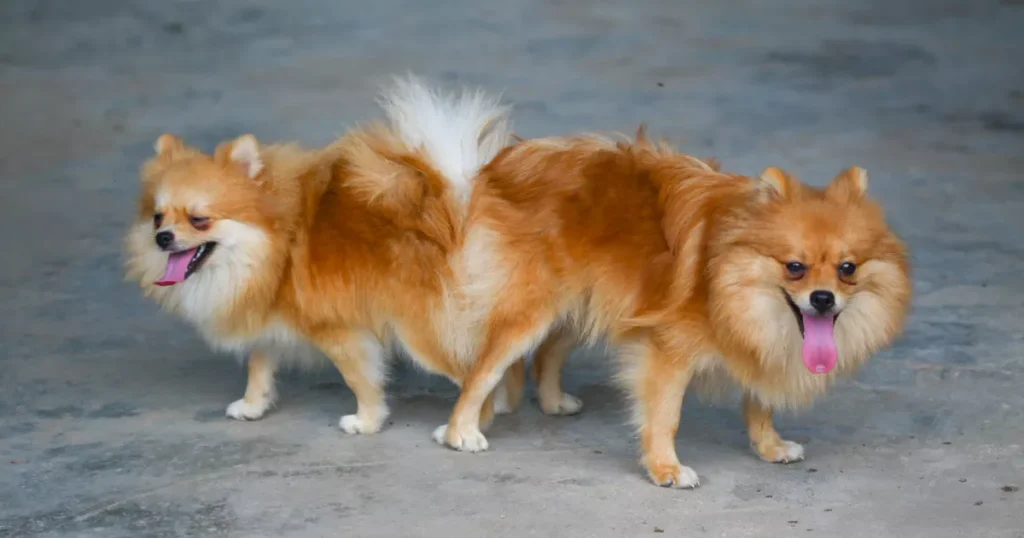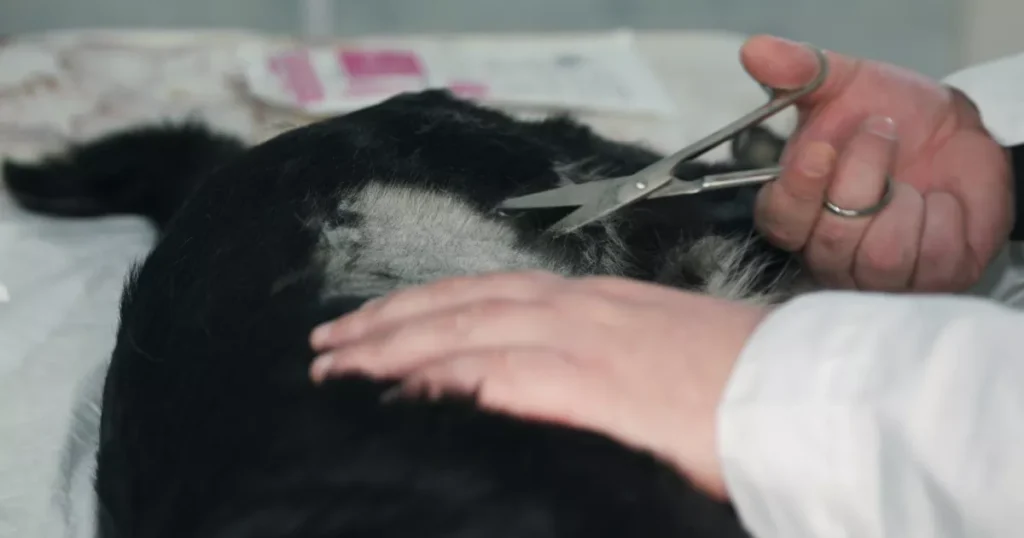For dog owners across America, understanding the factors that influence their beloved pet’s weight is crucial. A dog’s weight plays a significant role in its overall health and longevity. While age is a determinant factor in the nutritional needs and weight changes of dogs, the roles of gender and the decision to spay or neuter cannot be overlooked.
The Role of Gender in a Dog’s Weight

First, let’s talk about gender. While both male and female dogs have their unique traits, these differences can manifest in their weight and nutritional needs. Typically, male dogs are larger and, as a result, naturally weigh more than female dogs. This means that their daily caloric intake to maintain an active lifestyle may be higher than that of their female counterparts.
However, it’s not just the males we need to keep an eye on. Female dogs undergo hormonal changes during their heat cycles that can influence their appetite and weight. It’s observed that during these cycles, some female dogs might exhibit an increased appetite which, if not managed, can lead to weight gain.
Regardless of gender, it’s vital for owners to be observant. Keeping track of any sudden changes in weight or appetite can give you a good indication if something’s off. Regular vet check-ups, a balanced diet, and a steady exercise routine will ensure that your pup, whether male or female, remains in the best of health.
The Impact of Spaying and Neutering

Spaying (for females) and neutering (for males) are standard procedures in the U.S., advised to control the pet population and sometimes even recommended for health and behavioral reasons. But did you know that these surgeries can also affect your dog’s weight?
Research indicates that neutered pets have a higher chance – almost three times more – of becoming overweight compared to those that aren’t. Why, you ask? Well, the removal of a dog’s ovaries or testicles during the procedure results in a loss of sex hormones. This hormonal change leads to a decreased metabolic rate, meaning the dog would now require fewer calories to maintain its original weight.
Besides, it’s observed that dogs, after undergoing these surgeries, may exhibit a decreased interest in physical activities. Less play means fewer calories burnt, which can further add to the risk of weight gain.
However, a crucial point to remember is that while spaying or neutering can be a factor, it does not directly result in morbid obesity. Yes, there might be some weight gain due to decreased metabolism and less physical exertion, but with careful monitoring of their diet and regular exercise, dogs can maintain a healthy weight post-surgery.
In a Nutshell
The weight of your furry friend can be influenced by multiple factors, with gender and spaying/neutering being significant contributors. Male dogs generally have a heftier build compared to females, while female canines might experience weight fluctuations during their heat cycles. On the other hand, the choice to spay or neuter, while beneficial in many ways, can be a factor in reduced metabolism and decreased physical activity, potentially leading to weight gain.
However, as responsible pet owners, it’s in our hands to ensure our dogs’ well-being. Regular weight checks, consultations with the veterinarian, a balanced diet, and consistent exercise can help combat any adverse effects on weight due to gender or surgical procedures. After all, a healthy dog is a happy dog, and isn’t that what we all want for our loyal companions?
Frequently Asked Questions
Are there any other factors besides gender and spaying/neutering that can affect a dog's weight?
Absolutely. Besides gender and spaying/neutering, a dog's weight can be influenced by factors like age, breed, diet, exercise routine, metabolic rate, and health conditions. Some breeds are genetically predisposed to obesity, while others remain lean. Similarly, dogs with certain health conditions, like hypothyroidism or Cushing's disease, can experience weight gain.
How can dog owners help their neutered/spayed dogs maintain a healthy weight?
Dog owners can help their neutered/spayed dogs maintain a healthy weight by monitoring their diet closely and ensuring it meets their altered nutritional needs post-surgery. Regular exercise, weight check-ins, and consultations with a veterinarian to adjust feeding amounts or routines can also be beneficial. Toys and interactive games can keep the dog active and mentally stimulated, reducing chances of weight gain from inactivity.
Is there a difference in weight gain between male and female dogs after spaying/neutering?
While both male and female dogs can experience weight gain post-surgery due to reduced metabolism, the extent of weight gain might vary based on individual factors like breed, age, and activity level. The hormonal changes during a female dog's heat cycle can also play a role in her weight fluctuations. However, it's essential to understand that both genders, when neutered or spayed, can face the risk of weight gain, emphasizing the importance of consistent monitoring and adjustments in diet and exercise.
Can the weight gain after spaying/neutering be reversed? Yes, with proper intervention, the weight gained post-surgery can be managed and even reversed. Regular exercise, a controlled diet, and perhaps a switch to lower-calorie dog food can help.
Does every dog gain weight after being spayed or neutered?
No, not every dog will gain weight after the procedure. While there's an increased risk due to the changes in metabolism and potential reduced activity, with the right care, many dogs maintain their pre-surgery weight. Monitoring and being proactive in managing their diet and exercise is key.
How soon after the spaying/neutering procedure should I be concerned about my dog's weight? It's a good practice to monitor your dog's weight regularly after the procedure. However, if you notice rapid weight gain or a significant increase within a few months post-surgery.